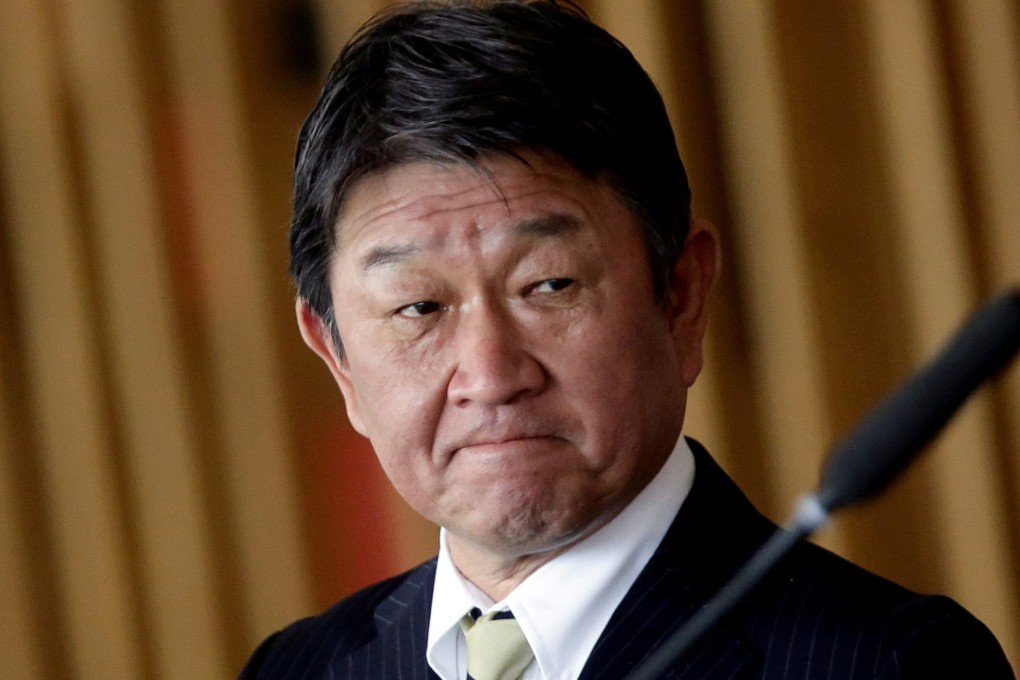China warns Japan to not follow suit after US sanctions over Xinjiang, Hong Kong
- Chinese Foreign Minister Wang Yi and Japanese counterpart Toshimitsu Motegi have a 90-minute phone conversation
- Wang urges Japan to not get ‘carried away’ by countries that are biased against China

Wang and his Japanese counterpart, Toshimitsu Motegi, had a 90-minute phone conversation on Monday, an exchange that came at the request of Beijing, according to the Japanese foreign ministry.
In a rare move, the Chinese foreign ministry put out a two-part statement on the phone call between Wang and Motegi. One statement criticised Biden’s recent efforts to coordinate with allies on a joint strategy on China, warning Tokyo to avoid following the US in sanctioning China over alleged human rights abuses in Xinjiang and Hong Kong.
“If under the guise of multilateralism, countries engage in bloc politics or big power confrontations, or even arbitrarily impose unilateral and illegal sanctions on other countries based on false information, the world will regress to the law of the jungle of right and wrong,” said Wang.
